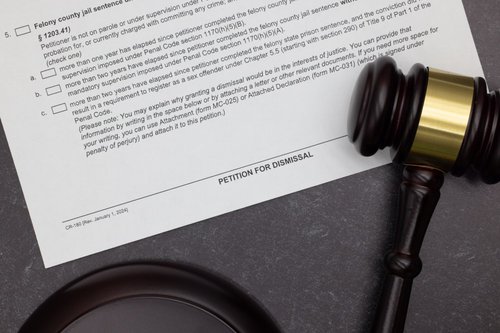How to Get Your DUI Case Dismissed in Ontario

Facing a DUI charge in Ontario can be daunting, but case dismissals are possible. Knowing your rights, potential legal missteps, and leveraging an experienced DUI lawyer's expertise can significantly increase your chances of a favorable outcome.
Key Takeaways
- Reasonable Grounds : Police must have valid grounds for a DUI arrest; otherwise, charges can be contested.
- Charter Rights Violations : Violations of your Charter Rights, such as delayed legal access or unclear charges, may lead to evidence exclusion or case dismissal.
- Procedural Errors : Mistakes in evidence handling, improper testing, or failing to follow Criminal Code procedures can weaken the Crown's case.
- Lack of Disclosure : If the Crown fails to provide all evidence to the defense, the case may be dismissed for inadequate trial preparation.
- Expert Legal Support : An experienced DUI lawyer can identify weaknesses in the prosecution's case and negotiate better outcomes, including dismissals.
Hearing an Ontario judge declare “case dismissed" is music to the ears of anyone charged with driving under the influence (DUI) of alcohol and/or drugs. And if Greater Toronto Area police have recently arrested you for a DUI, you're probably wondering how you might be able to convince a judge to dismiss your charges.
Is such a favourable outcome implausible to the point of being like finding rock star parking at the Rogers Centre during a Blue Jays home game? Or are there variances in the law and court procedures that provide openings for easy case dismissals?
The skilled criminal defence lawyers of TorontoDUI will advise you that you have a much better shot at getting a judge to dismiss your DUI charges than getting prime Rogers Centre parking during a home game. According to the latest Statistics Canada data on Ontario criminal court decisions between 2011 and 2022, 40% to 60% of annual DUI cases resulted in stays, withdrawals, dismissals, and discharges.
However, a judge isn't just going to dismiss your DUI charges because they like your smile, are feeling euphoric over the previous night's Blue Jays' victory, think the Crown prosecutor is a twit, or have other reasons unrelated to the case. No, dismissals, stays, withdrawals, or similar outcomes approved by the judge must be based on a point of law or misapplication of legal procedure.
Thus, to significantly enhance the likelihood of your DUI case dismissal, you should turn to the expertise of an experienced DUI criminal defence lawyer. A skilled DUI lawyer will examine all elements of your case to seek out potential police officer mistakes, faulty evidence, and any actions taken by you or the police that might compromise the legal validity of the arrest and related charges. Depending on case research findings, your lawyer may be able to wield valuable information that weakens the Crown's case and increases the likelihood of a negotiated withdrawal for lesser charges or outright dismissal. Let's now turn to the factors that can steer a DUI case toward a possible dismissal, stay or withdrawal.
Lack of Reasonable and Probable Grounds for the Arrest
Before charging a driver with DUI, police must have reasonable and probable grounds to believe they were impaired by alcohol and/or drugs. Know that failing a roadside screening test for impairment constitutes such reasonable and probable grounds. Given that 2018 legislation now allows Canadian police to demand roadside screening from any driver, securing a dismissal based on this factor has become much more challenging. However, not all DUI arrests initially stem from roadside screening, and the lack of reasonable and probable grounds can still derail some DUI cases.
Charter Rights Violations
Judges consider protection of a suspect's Charter Rights sacrosanct under Canadian as they guarantee the fair and just application of the law. Judges readily exclude evidence if the police and Crown procurement of such violates the defendant's Charter Rights, and judges will often dismiss DUI charges outright in the face of egregious violations.
Charter Rights violations that justify evidence exclusion and/or case dismissal include:
- Police failure to advise a suspect of their Charter Rights.
- Police failure to provide a suspect with a clear explanation of the charges and/or reasons for detainment.
- Suspect not provided a reasonable and timely opportunity to consult with their chosen lawyer.
- Privacy of the legal consultation between the suspect and their lawyer was breached.
- Suspect with limited English/French speaking skills not provided with competent interpretation services.
- Police failure to specifically detail the reasons for the suspect's detainment.
- Unreasonable police delays in making a roadside screening demand.
- Suspect not provided with the required breathalyzer certification.
- Suspect was detained for an unreasonable time frame after the arrest.
- Court system failure to provide the defendant with the right to a speedy trial.
Of these Charter Rights violations, the last one has served as the basis for many DUI case dismissals. Ontario's court system is overburdened, and Crown prosecutors struggle to bring DUI cases to a speedy conclusion. When presented with defence evidence that exposes flaws in a DUI case, prosecutors will often be willing to negotiate a plea deal for lesser charges, stay the proceedings, and, in some cases, not challenge defence motions for case dismissal.
Q: How does a DUI conviction impact my insurance rates in Ontario?
A: A DUI conviction typically results in a significant increase in insurance premiums, sometimes up to 100%. A dismissal or reduction of charges can help mitigate this financial impact.
Procedural Mistakes
Canadian police are required to diligently follow specific procedures when procuring evidence, detaining people, and making arrests. Some of these procedures are designed to ensure that police protect Charter Rights, while the Criminal Code distinctly establishes others. Police failure to follow procedures often allows the defendant to seek a case dismissal.
A prime example of a “case dismissed" procedural mistake we've come across is when an investigating officer borrows an approved screening device from another officer. Section 320.27 (1) of the Criminal Code clearly states that an officer can only demand roadside screening if they possess the device. More than one DUI case in the GTA has been dismissed because an officer requested the device from another officer. Other procedural errors can involve:
- Improper administration of roadside screening, field sobriety testing, or breathalyzer testing.
- Failure to test and calibrate roadside screening devices and breathalyzer equipment.
- Improper handling of evidence.
- Delays exceeding two hours between the traffic stop and the administration of a breathalyzer.
- Failure to properly record police interrogations and narrative of case events.
- Breaks in the evidentiary chain of custody.
Crown Failure to Disclose All Evidence
Crown prosecutors must disclose all evidence collected in a criminal case to the defendant. If the defence can prove that the Crown failed to disclose any evidence, a judge may dismiss the case because it compromised the defendant's ability to adequately prepare for trial.
For Expert DUI Defence in the GTA, Contact TorontoDUI
The top-notch legal team of DUI experts at TorontoDUI has established a 15-plus-year record of successfully defending thousands of Greater Toronto Area clients against DUI charges. Our lawyers have a plus-.600 batting average when it comes to securing case dismissals, withdrawals, stays, acquittals, and other positive results in DUI cases. To hit a home run with your DUI defence, contact us for a free consultation.
